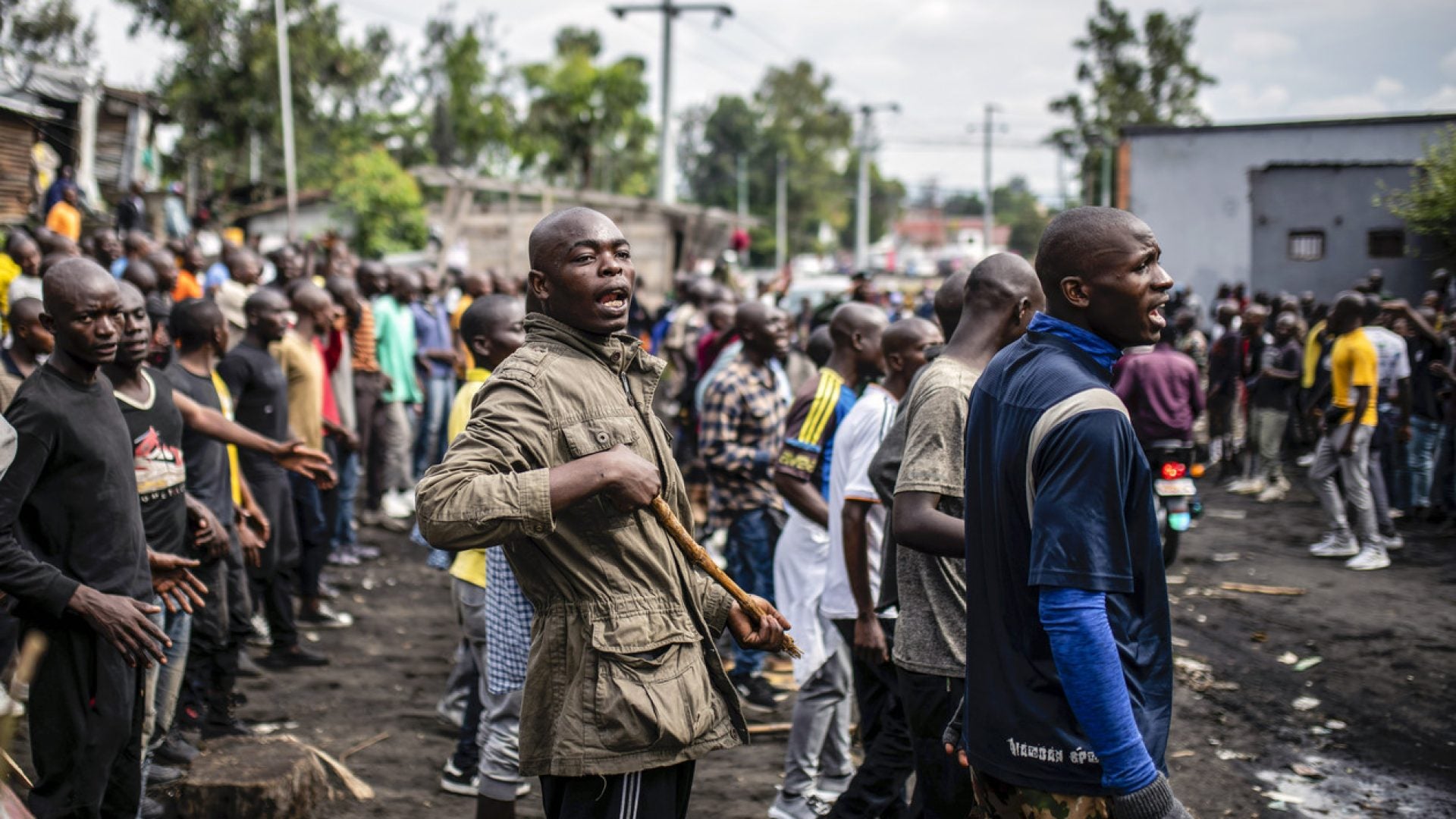
A violent conflict has long besieged the eastern region of the Democratic Republic of the Congo (DRC), but the crisis has escalated since October.
As Doctors Without Borders project coordinator in Goma Graham Inglis said, but “[s]ince early October, the situation has gotten significantly worse…There are tens and tens of thousands of new displaced people.”
“Since the Rwandan genocide, various rebel groups and militaries have vied for control over the border region — an area that sits in the middle of a high-traffic commercial trade route and is rich in natural resources, including copper and cobalt,” Politico reports.
Patrick Muyaya, a Congolese government spokesperson said, “When it comes to Ukraine, the United States is doing its best. When it comes to Rwanda, which is acting the way sometimes Vladimir Putin is acting, we are not receiving the same answer or the same reaction from the United States.” “It’s a bit unfair for Congolese people, so we hope that these last rounds of discussions will be able to deliver,” stated Muyaya.
Political instability is also at play. On December 8, 56 civic organizations wrote the United Nations (UN) Security Council, urging them to take action in this matter.
“Elections in DRC have historically been challenging, and those scheduled for December 2023 heighten risks to an already dire situation,” the letter reads in part.
“Frustrations are growing among people prevented or intimidated from registering to vote or campaigning due to insecurity. There are increasing concerns that credible elections cannot be held in many areas of the east, which is likely to further increase violence,” the letter continued.
While this conflict might appear somewhat removed from the U.S., there is a connection between vaping and the DRC. Per the Michigan Daily, “[v]apes and e-cigarettes contain lithium batteries that are made of cobalt.” Give that there is no ethical method to mine for cobalt in the DRC and because the country is the majority producer of cobalt, this industry has caused an overabundance of human rights issues for the Congolese.
The ongoing fighting, which has occurred for decades, has caused many to be displaced. According to the UNHCR, the UN Refugee Agency, the DRC’s “displacement situation…is the most complex and long-standing humanitarian crisis in Africa and the fourth largest internally displaced persons (IDP) crisis in the world.”
UNHCR also notes that “the country currently hosts more than half a million refugees and 6.2 million IDPs – the largest IDP population in Africa.”
U.S. Secretary of State Antony Blinken has reached out to DRC and Rwanda leaders, “asking them to deescalate and engage in diplomatic talks to end the fighting.”
A senior official who asked to remain anonymous told Politico, “We are looking to work with both sides to take steps that reduce fighting in eastern DRC and avoid the prospect for interstate conflict.”
“We worked with both sides to identify what equipment and posture they view as offensive in nature and then options to remove some of those from the equation so that there’s a less chance for miscalculation,” added the senior official.





